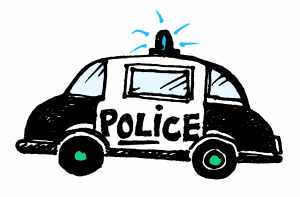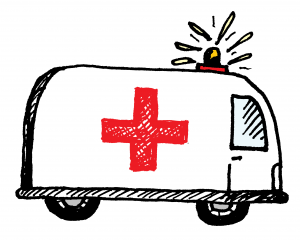
Getting Help in a Crisis
Watch Professor Jo Smith discussing out of hours crisis services
These are the key points of contact in a crisis:
- Crisis team. Many services now offer a crisis helpline. If you do not already have the number, check the NHS Trust website. They are generally available 24 hours, 7 days a week. Staff are experienced in managing mental health problems and should be the first point of contact
- Accident and Emergency department of your local hospital. If your relative is willing to go with you to the A&E department it will be possible to see a Psychiatrist. Be aware you may have to wait a long time
- Emergency Services (police or ambulance). Where there is serious risk to people or property, you should strongly consider contacting the emergency services. Reporting to the police can be very hard when it involves a relative or close friend. If Jez Pavey drives off in the family car when he is drunk and unwell he could put himself and others in serious danger. The potential risk to Jez and members of the public outweighs other considerations, for example that Jez loses his licence or is angry with his parents. Unfortunately, Jez’s case is not unusual; 40% of people with early psychosis have contact with the police at some stage.The Mental Health Crisis Concordant (2014) is a national agreement between services about how they will make sure people get appropriate help in a mental health crisis. This should make it easier for you as a relative or friend to get the right support in a crisis. If you are having problems getting support in a crisis, it may be helpful to refer to this document which sets out what you should expect. Four key areas are highlighted:
- Access to support before crisis point – making sure people with mental health problems can get help 24 hours a day and that when they ask for help, they are taken seriously.
- Urgent and emergency access to crisis care – making sure that a mental health crisis is treated with the same urgency as a physical health emergency.
- Quality of treatment and care when in crisis – making sure that people are treated with dignity and respect, in a therapeutic environment.
- Recovery and staying well – preventing future crises by making sure people are referred to appropriate services.
The full concordat (which just means agreement) is available at www.crisiscareconcordat.org.uk

It’s time to call the police when your relative:
- Is assaulting or threatening violence to people
- Is planning or preparing to harm themselves
- Has collected weapons or dangerous substances
- May be responsible for a serious crime
- Has uncharacteristically gone missing

It’s time to call the ambulance when your relative:
- Has taken an overdose or poison
- Has attempted to seriously harm themselves
- Is so disturbed by their psychosis that you feel they are at risk of committing
- dangerous impulsive acts


